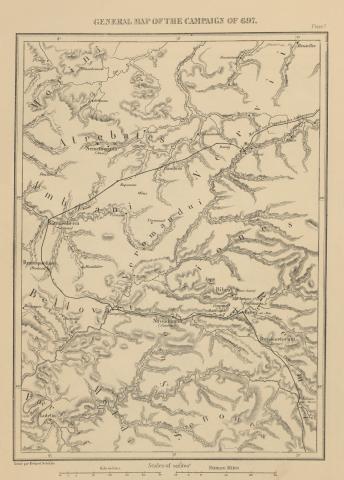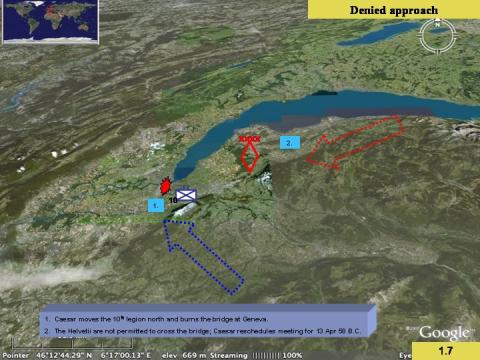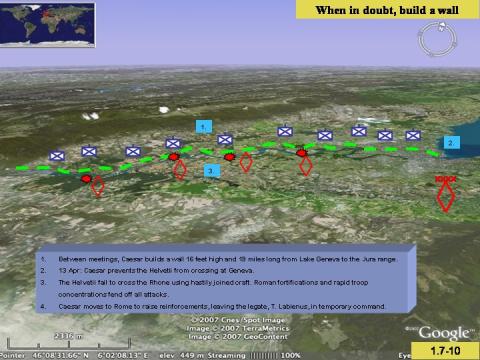Caesarī cum id nūntiātum esset, eōs per prōvinciam nostram iter facere cōnārī, mātūrat ab urbe proficīscī, et quam māximīs potest itineribus in Galliam ūlteriōrem contendit, et ad Genāvam pervenit. Prōvinciae tōtī quam māximum potest mīlitum numerum imperat (erat omnīnō in Galliā ūlteriōre legiō ūna), pōntem quī erat ad Genāvam iubet rescindī. Ubi dē ēius adventū Helvētiī certiōrēs factī sunt, lēgātōs ad eum mittunt nōbilissimōs cīvitātis, cūius lēgātiōnis Nammēius et Verucloetius prīncipem locum obtinēbant, quī dīcerent sibi esse in animō sine ūllō maleficiō iter per prōvinciam facere, proptereā quod aliud iter habērent nūllum: rogāre ut ēius voluntāte id sibi facere liceat. Caesar, quod memoriā tenēbat L. Cassium cōnsulem occīsum exercitumque ēius ab Helvētiīs pulsum et sub iugum mīssum, concēdendum nōn putābat; neque hominēs inimīcō animō, datā facultāte per prōvinciam itineris faciendī, temperātūrōs ab iniūriā et maleficiō exīstimābat. Tamen, ut spatium intercēdere posset dum mīlitēs quōs imperāverat convenīrent, lēgātīs respondit diem sē ad dēlīberandum sūmptūrum: sī quid vellent, ad Īd. Aprīl. reverterentur.



